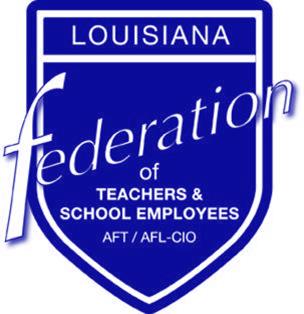http://www.youtube.com/watch?v=ujK9OrCd21E&feature=c4-overview&list=UUhOyHPx3_l84v0k9zj-HTog
View the entire press conference here.
At the November 5, 2013 Caddo Parish School Board meeting, the Recovery School District revealed its Partnership Agreement with the Caddo Parish School Board. This “agreement,” among other things, essentially forces the Caddo Parish School board to close down Newton Smith 6th Grade Center and Linear Leadership Academy, and gives the Caddo Parish School Board the option to choose between contracting a management or charter corporation to have complete control of curriculum, hiring, and daily operations of Atkins, Midway, Fair Park, and Woodlawn, or having a service provider provide these services under the control of a CPSB appointed principal. If the Caddo Parish School Board chooses to do neither, the Recovery School District can take over, and do with these schools as they please.
The plan also encourages Caddo Parish to partner with “alternative certification teacher pipeline programs” (their words, not ours), and school board members explicitly mentioned Teach for America. Teach for America recruits recent college graduates to teach in classrooms for 2-3 year periods. Over 50% of all Teach for America teachers nationwide leave teaching after 2 years, and more than 80% leave teaching after 3 years. These teachers enter the classroom with only five weeks of teacher training, and absolutely no live classroom experience. School districts also pick up some of the costs of training these teachers, who replace qualified, certified, and experienced teachers in the nation’s toughest classrooms. That this plan wants to bring TFA into Caddo Parish is a slap in the face of Caddo Parish teachers. Instead of supporting Caddo’s excellent teachers, this new plan wants to PAY to train college graduates with no education experience to take the place of a certified, experienced teacher.
Red River United believes that students are best served by community controlled schools, and that the Caddo Parish School System is best equipped to raise academic standards. Red River United does not believe turning our students over to the RSD, a management corporation, a service provider, or a charter school corporation meets the promise of providing a quality public education to our students. This is a question of civil rights. All children deserve a stable, quality education. The RSD does not have a proven track record of turning around AU schools. Parents and students are demonstrating a lack of confidence in the RSD through participation in community actions and petitions.
Sign our community petition asking the RSDs to leave our public schools alone. Like our Reclaim Caddo Parish Facebook cause page, and check out links to articles about the RSD on the page. Remember, the threat of an RSD takeover is still lurking on the sidelines.
This is how Red River United proposes to improve Caddo Schools:
• Caddo should focus on creating K-8 models. They are stabilizing for students and have provided academic success in our district.
• Caddo should focus on choice. One area proven successful has been our programmatic magnet schools. These schools should be standalone, and not part of any existing school.
• Caddo should concentrate the focus on where we can be the most effective in overall student achievement – we should provide Pre-k for every student in our district, with wraparound services for at-risk youngsters.
• Caddo should focus on strong professional development for all of our teachers. TAP, for example, has proven successful in other districts and in Caddo Parish where it has been implemented in several schools.
• Caddo should focus on academic standards and disciplinary codes of conduct in all of our schools. Teachers cannot teach, and students cannot learn in an atmosphere full of disruption and discord.
• Caddo should be willing to reach out to the community, the public for their help and input. After all, it is the Public’s Education.
Red River United believes in the promise of a public education, which needs to be safeguarded against moves to undermine by outside corporations seeking to make a profit. What is the promise of public education? Public schools provide transportation to and from school, provide healthy breakfasts and lunches for our children, a clean and safe environment to learn, a certified classroom teacher, and a promise to provide services to ALL children, even those with special needs. These are all promises of public education. Will we be able to keep these promises once we have torn apart our Caddo Parish Schools, relinquished community control of our schools, and parsed control of our schools to private- monied and political interests?












